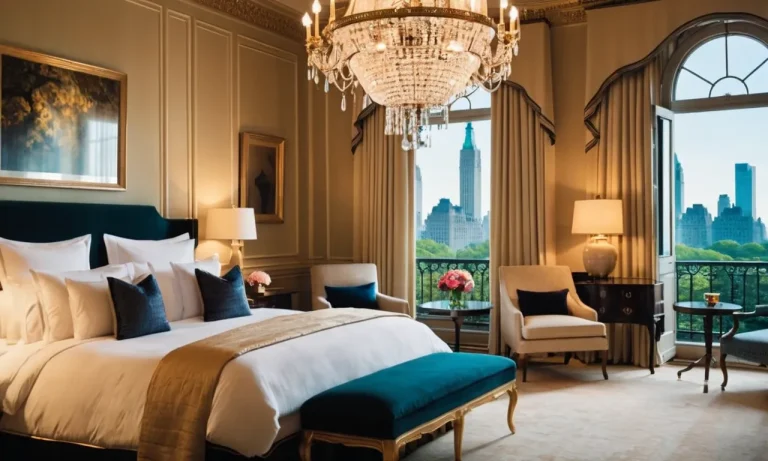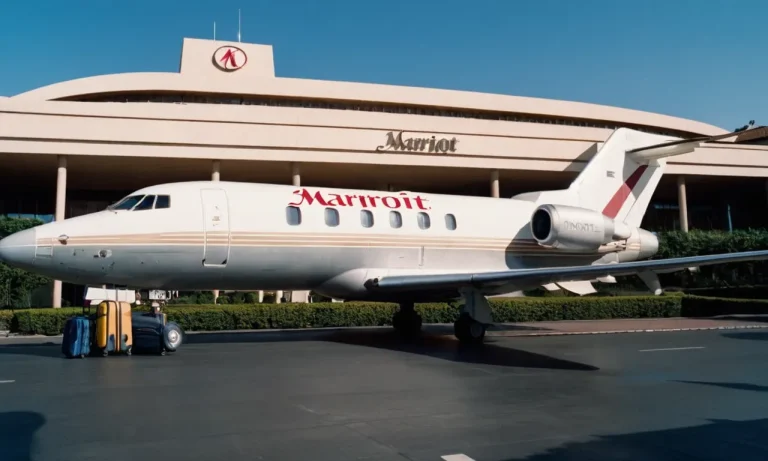Are Capsule Hotels Illegal in the USA? A Comprehensive Guide
Imagine a world where space is a luxury, and the concept of a traditional hotel room is reimagined. Welcome to the realm of capsule hotels, a unique and innovative form of accommodation that has taken the world by storm.
But are these compact sleeping pods legal in the land of the free, the United States of America?
If you’re short on time, here’s a quick answer to your question: Capsule hotels are not explicitly illegal in the USA, but their legality is subject to various building codes, zoning regulations, and safety standards that vary from state to state and even city to city.
In this comprehensive article, we’ll delve into the intricacies of capsule hotel legality in the USA, exploring the challenges, opportunities, and the ever-evolving landscape of this unconventional lodging concept.
From the historical origins of capsule hotels to the potential future of this unique accommodation style, we’ll cover it all, ensuring you have a thorough understanding of this captivating topic.
The Origins and Evolution of Capsule Hotels
The Birth of Capsule Hotels in Japan
Capsule hotels, a unique and innovative form of accommodation, were born out of necessity in the bustling city of Osaka, Japan, in the late 1970s. With a booming economy and limited space, architects and designers sought creative solutions to address the housing shortage faced by businessmen and travelers.
The concept of capsule hotels, inspired by the compact sleeping quarters on trains, offered a practical and affordable option for those seeking a place to rest for the night.
The first capsule hotel, Capsule Inn Osaka, opened its doors in 1979, featuring a series of modular capsules stacked vertically, each providing just enough space for a single occupant to sleep comfortably.
These capsules were designed with ingenious space-saving features, such as built-in TVs, reading lights, and storage compartments for personal belongings. The idea quickly caught on, and capsule hotels began popping up across major cities in Japan, catering to the needs of budget-conscious travelers and businessmen alike.
The Concept’s Global Expansion
As the world became increasingly interconnected, the unique concept of capsule hotels piqued the interest of travelers and hoteliers beyond Japan’s borders. According to a report by Statista, the global capsule hotel market is projected to reach a value of $226.7 million by 2027, growing at a CAGR of 6.4% from 2020 to 2027. Cities like Singapore, Moscow, and Sydney have embraced the capsule hotel trend, offering travelers a modern and affordable alternative to traditional hotel rooms.
- In Singapore, the The Pod capsule hotel offers a unique blend of Japanese minimalism and modern amenities, catering to both budget-conscious travelers and those seeking a unique experience.
- Moscow’s Ziferblat Capsule Hotel takes the concept a step further by incorporating a cozy lounge area and a pay-per-minute pricing model, fostering a sense of community among guests.
- Sydney’s Capsule Hotel combines the traditional capsule design with contemporary touches, offering guests a taste of Japanese hospitality in the heart of Australia.
Adapting to Modern Travelers’ Needs
As the world continues to evolve, so too do the expectations of modern travelers. Capsule hotels have embraced this change, adapting their offerings to cater to the diverse needs of their guests. Many capsule hotels now offer larger capsules or even private rooms, providing more space and privacy for those seeking a more luxurious experience.
😍 Additionally, amenities such as high-speed Wi-Fi, shared lounges, and co-working spaces have become increasingly common, catering to the digital nomad and remote worker lifestyles.
Beyond the practical benefits, capsule hotels have also embraced the concept of community building, fostering a sense of connection among guests through shared spaces and social events. This innovative approach to hospitality has garnered praise from travelers seeking unique and authentic experiences, with capsule hotels often being lauded for their attention to detail and commitment to sustainability.
As the world continues to navigate the challenges of urbanization and the ever-changing travel landscape, capsule hotels stand as a testament to human ingenuity and adaptability. 🎉 From their humble beginnings in Osaka to their global expansion, these compact accommodations have proven that sometimes, less can be more, offering travelers a unique and unforgettable experience.
Legal Considerations for Capsule Hotels in the USA
As the concept of capsule hotels continues to gain popularity worldwide, it’s crucial for entrepreneurs and investors in the United States to navigate the legal landscape surrounding this unique form of accommodation.
While capsule hotels offer an innovative and cost-effective lodging solution, they must comply with various regulations to ensure the safety and well-being of guests.
Building Codes and Zoning Regulations
Capsule hotels in the USA must adhere to strict building codes and zoning regulations, which vary from state to state and even city to city. These rules govern the design, construction, and occupancy of buildings, ensuring they meet minimum standards for structural integrity, fire safety, and accessibility.
According to the International Code Council, a leading organization that develops model codes for the built environment, capsule hotels may be classified as “congregate living facilities,” which have specific requirements for factors like room size, ventilation, and emergency egress.
It’s essential for capsule hotel developers to work closely with local authorities and obtain the necessary permits and approvals before proceeding with construction or renovation. Failure to comply with building codes and zoning regulations can result in hefty fines, project delays, or even the closure of the establishment.
Fire Safety and Emergency Protocols
Given the compact nature of capsule hotels, fire safety and emergency protocols are of paramount importance. These establishments must adhere to stringent fire codes, which dictate requirements for fire alarms, sprinkler systems, emergency lighting, and evacuation routes.
Additionally, capsule hotels must have comprehensive emergency plans in place to ensure the safe and efficient evacuation of guests in case of fire, natural disasters, or other emergencies.
According to the National Fire Protection Association (NFPA), hotels and lodging facilities must comply with NFPA 101: Life Safety Code, which outlines specific guidelines for fire safety and emergency preparedness.
These guidelines cover areas such as maximum occupancy levels, fire-resistant construction materials, and staff training for emergency situations.
- A recent study by the U.S. Fire Administration revealed that between 2014 and 2018, there were an average of 3,600 hotel and motel fires reported annually, resulting in an estimated $76 million in property loss each year.
- Proper fire safety measures and emergency protocols can significantly reduce the risk of injuries, fatalities, and property damage in capsule hotels.
Accessibility and Inclusivity Standards
Capsule hotels in the USA must comply with the Americans with Disabilities Act (ADA) and other accessibility standards to ensure that their facilities are inclusive and accommodating for individuals with disabilities.
These regulations cover various aspects, including accessible entrances, hallways, elevators, and guest rooms.
Furthermore, capsule hotels should strive to create an inclusive environment that caters to diverse guests, regardless of their age, gender, race, or cultural background. This may involve providing multilingual signage, offering gender-neutral or family-friendly capsule options, and training staff on cultural sensitivity and inclusivity best practices.
| Accessibility Requirement | Description |
|---|---|
| Accessible Guest Rooms | A certain percentage of guest rooms must be accessible for individuals with mobility, hearing, or vision impairments. |
| Accessible Routes | All public areas, including lobbies, corridors, and restrooms, must have accessible routes for individuals with disabilities. |
| Assistive Technologies | Capsule hotels should provide assistive technologies, such as visual alarms, closed captioning, and TTY/TDD devices, to accommodate guests with hearing or vision impairments. |
By adhering to these legal considerations, capsule hotels in the USA can offer a safe, inclusive, and compliant lodging experience for their guests while avoiding potential legal pitfalls and penalties. It’s a win-win situation for both the establishments and the communities they serve.
Challenges and Opportunities for Capsule Hotels in the USA
Overcoming Cultural Perceptions
Capsule hotels, with their compact sleeping pods and shared amenities, are a novel concept in the United States. Many Americans are accustomed to spacious hotel rooms and may initially find the idea of sleeping in a capsule too confining or unconventional.
To overcome these cultural perceptions, capsule hotel operators need to educate potential guests on the benefits of this minimalist lodging experience. They can highlight the affordability, privacy, and innovative design of capsule hotels, appealing to travelers seeking unique and cost-effective accommodations.
According to a survey by Statista, over 60% of millennials express interest in alternative accommodations like capsule hotels. 😊 By targeting this demographic and emphasizing the trendy, tech-savvy aspects of capsule hotels, operators can position themselves as pioneers in the minimalist lifestyle movement.
Additionally, offering amenities like private lounges, high-speed Wi-Fi, and modern entertainment systems can help alleviate concerns about cramped spaces.
Capitalizing on the Minimalist Lifestyle Trend
The growing popularity of minimalism, particularly among younger generations, presents a significant opportunity for capsule hotels in the USA. As people embrace the idea of living with fewer possessions and prioritizing experiences over material goods, the compact and functional design of capsule hotels aligns perfectly with this mindset.
Capsule hotel operators can leverage this trend by highlighting the minimalist and eco-friendly aspects of their accommodations.
By offering a streamlined and clutter-free environment, capsule hotels can appeal to individuals seeking a simplified and sustainable travel experience. Emphasizing the efficient use of space, innovative storage solutions, and reduced environmental impact can resonate with conscious travelers who value minimalism and sustainability.
👏 Additionally, partnering with local businesses that promote a minimalist lifestyle, such as zero-waste stores or minimalist fashion brands, can further strengthen the capsule hotel’s alignment with this trend.
Addressing Privacy and Security Concerns
One of the primary concerns surrounding capsule hotels is the perceived lack of privacy and security. While capsule hotels offer private sleeping pods, the shared nature of common areas and amenities may raise concerns among some travelers.
To address these concerns, capsule hotel operators must prioritize guest privacy and implement robust security measures.
- Implementing strict access controls, such as keycard entry systems for guest areas and CCTV monitoring, can provide a sense of security and privacy.
- Offering private lockers or storage spaces for personal belongings can alleviate concerns about theft or loss.
- Ensuring sound insulation in the capsules can minimize noise disturbances and enhance the sense of privacy.
Additionally, capsule hotels could consider offering private capsule suites or pods with attached bathrooms for guests seeking an extra level of privacy. By addressing these concerns proactively and transparently, capsule hotel operators can build trust with potential guests and position themselves as a safe and secure accommodation option.
Successful Capsule Hotel Ventures in the USA
Case Studies and Best Practices
While capsule hotels are a relatively new concept in the United States, a few pioneering ventures have successfully introduced this unique accommodation model to American travelers. One notable example is Joie de Vivre’s Cabine in San Francisco, which opened in 2018 and offers compact, pod-like rooms with shared amenities.
By embracing minimalism and efficient design, Cabine has managed to provide an affordable and convenient option for budget-conscious travelers in the heart of the city. 😊
Another capsule hotel that has garnered attention is The Nugget in Oklahoma City. This innovative establishment features 92 private sleeping pods, each equipped with a comfortable bed, storage space, and personal amenities.
The Nugget has successfully catered to a diverse range of guests, including solo travelers, business professionals, and those seeking a unique and affordable lodging experience. 👍
Innovative Design and Amenity Solutions
One of the key challenges faced by capsule hotels in the USA is adapting the compact living concept to meet the expectations and preferences of American travelers. Successful ventures have addressed this by incorporating innovative design solutions and thoughtful amenities.
For instance, 9 Hours, a capsule hotel in Los Angeles, offers private sleeping pods with adjustable lighting, climate control, and noise-canceling technology, ensuring a comfortable and restful stay for guests.
Additionally, many capsule hotels have recognized the importance of providing shared spaces and communal areas that foster a sense of community and social interaction. The Pod Hotels in New York City, for example, feature cozy lounges, co-working spaces, and rooftop terraces, allowing guests to mingle and connect with fellow travelers.
😍
Catering to Niche Markets and Travelers
While capsule hotels may not appeal to everyone, they have found success in catering to specific niche markets and types of travelers. For instance, The Block Hotel in Seattle has become a popular choice among solo adventurers, digital nomads, and minimalists seeking an affordable and sustainable accommodation option.
By offering a range of amenities tailored to their target audience, such as co-working spaces, bike storage, and eco-friendly initiatives, The Block Hotel has carved out a unique niche in the local hospitality market.
Similarly, capsule hotels have proven to be an attractive option for business travelers seeking a convenient and cost-effective alternative to traditional hotels. With locations near major transportation hubs and business districts, establishments like Yotel in Puerto Rico have successfully captured this market segment by offering compact, functional rooms with modern amenities and efficient check-in/check-out processes.
As the demand for unique and affordable lodging experiences continues to grow, it’s likely that we’ll see more innovative capsule hotel concepts emerging across the United States. By embracing cutting-edge design, catering to niche markets, and offering exceptional guest experiences, these establishments are proving that capsule hotels can thrive and find success in the American hospitality landscape.
🎉
The Future of Capsule Hotels in the USA
Emerging Trends and Technological Advancements
As the world continues to evolve, the hospitality industry is embracing innovative solutions to cater to the changing needs of travelers. Capsule hotels, once a novelty found primarily in Japan, are gradually gaining traction in the United States.
These compact, pod-like accommodations offer a unique and cost-effective lodging experience, particularly appealing to budget-conscious travelers and those seeking a minimalist approach to overnight stays.
One of the key drivers behind the potential growth of capsule hotels in the USA is the integration of cutting-edge technology. Companies like Sleeperoo are leading the way, designing capsules equipped with smart features such as built-in charging stations, ambient lighting, and climate control systems.
These advancements not only enhance the guest experience but also promote sustainability by optimizing energy consumption. 😊
Furthermore, the advent of virtual and augmented reality could revolutionize the capsule hotel experience. Guests might be able to customize their capsule’s virtual environment, creating immersive and personalized settings that transport them to serene landscapes or futuristic worlds.
This innovative approach could attract tech-savvy travelers seeking unique and engaging experiences. 👏
Potential Regulatory Changes and Adaptations
While capsule hotels have gained popularity in densely populated cities worldwide, their legality in the United States remains a complex issue. Currently, many states and municipalities have zoning laws and building codes that may not accommodate the compact design and shared amenities of capsule hotels.
However, as the demand for affordable and space-efficient accommodation grows, regulatory bodies may consider revising these regulations to facilitate the establishment of capsule hotels.
One potential adaptation could involve categorizing capsule hotels as a hybrid between traditional hotels and hostels, allowing for a more flexible regulatory framework. Additionally, local authorities might implement specific guidelines tailored to capsule hotels, addressing factors such as minimum capsule size, privacy considerations, and safety standards.
It’s worth noting that some cities, like New York City, have already witnessed the emergence of capsule hotel concepts, although their operations may be subject to certain restrictions. As the demand for these innovative accommodations grows, it is likely that more cities will explore ways to accommodate them within their existing regulatory frameworks or develop new guidelines to ensure compliance and consumer safety.
The Role of Capsule Hotels in Sustainable Tourism
In an era where sustainability is a paramount concern, capsule hotels could play a pivotal role in promoting eco-friendly travel practices. By design, these compact accommodations have a significantly smaller environmental footprint compared to traditional hotels.
Their efficient use of space and resources contributes to reduced energy consumption, water usage, and waste generation.
Furthermore, the minimalist nature of capsule hotels aligns with the growing trend of conscious consumerism. Travelers, particularly millennials and Generation Z, are increasingly seeking experiences that align with their values of sustainability and minimalism.
Capsule hotels cater to this demographic by offering a pared-down, no-frills lodging option that prioritizes functionality over excess.
As the tourism industry continues to grapple with the challenges of overtourism and environmental impact, capsule hotels could emerge as a viable solution, especially in popular urban destinations. By providing affordable and eco-friendly accommodation options, they can help distribute tourism more evenly and alleviate the strain on overcrowded areas.
🎉
Conclusion
As we navigate the ever-changing landscape of the hospitality industry, capsule hotels stand as a testament to innovation and adaptability. While their legality in the USA may be subject to various regulations and standards, the potential for this unique accommodation style to thrive is undeniable.
By embracing the challenges and capitalizing on the opportunities presented by capsule hotels, entrepreneurs and visionaries have the chance to redefine the concept of lodging, catering to the evolving needs of modern travelers while promoting sustainability and minimalism.
As we look towards the future, it’s clear that capsule hotels have the potential to become a integral part of the American hospitality scene, offering a unique and unforgettable experience for adventurous souls seeking a taste of the unconventional.
Embrace the capsule hotel revolution, and embark on a journey that transcends the boundaries of traditional accommodation.




